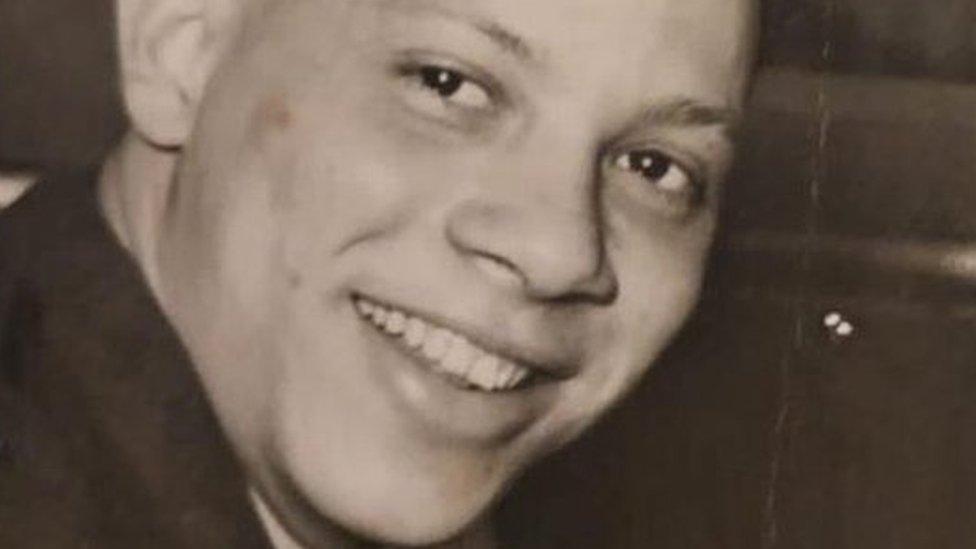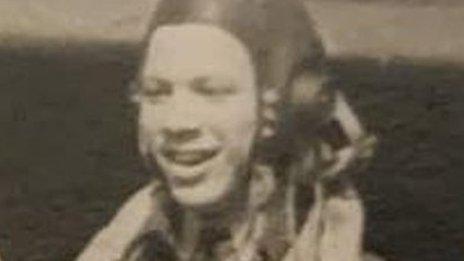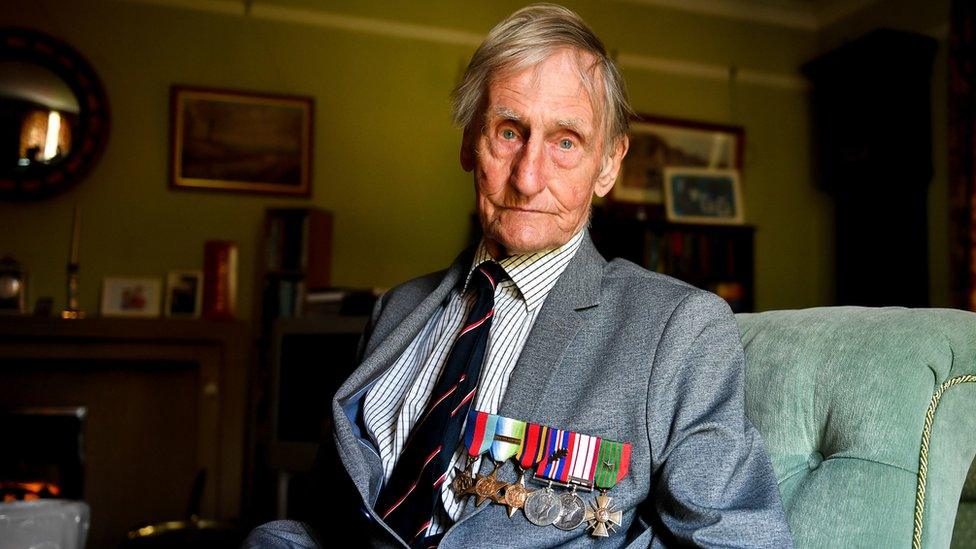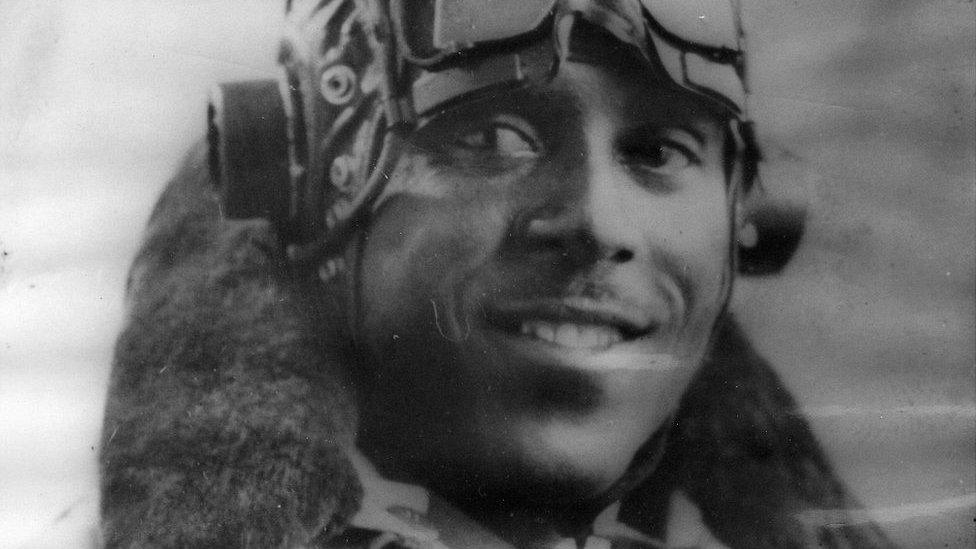Flt Sgt Peter Brown: WW2 veteran's funeral moved to RAF Central Church
- Published

It is thought Flt Sgt Peter Brown travelled to the UK from Jamaica and falsified his age in order to serve in World War Two
A service to mark the life of one of the last black RAF World War Two veterans will take place at central London's RAF Central Church in May.
Flt Sgt Peter Brown died alone in his flat in Maida Vale, west London, in December, aged 96.
He was thought to be one, if not the last, of the so-called "Pilots of the Caribbean".
His funeral was due to take place in March, but had to be moved as so many people wanted to attend it.
The service is now due to be held at St Clement Danes, the RAF Central Church, in Westminster on 25 May at 11:00 BST, Westminster City Council announced.
Six-hundred spaces in the church will be reserved for the public, with priority given to those with a connection to Flt Sgt Brown.
Members of the public wishing to attend his funeral have been asked to email rsvp@westminster.gov.uk.
The arrangements have been made to ensure he "receives a dignified send-off worthy of his life story", the council added.
Last month, organisers appealed to relatives or anyone who knew the veteran to get in touch with them.
Westminster City Council leader Adam Hug said the response to Flt Sgt Brown's story had been "overwhelming".
"The details of his life and subsequent search for relatives have truly captured the public imagination and moved people around the world," he added.
"Our priority has always been to ensure Mr Brown receives a fitting, dignified, send-off which allows those wishing to pay their respects, the opportunity to do so."

The RAF said Flt Sgt Brown was "an example of the selfless contribution of all Commonwealth personnel"
Flt Sgt Brown was a keen sportsman and a member of Marylebone Cricket Club from 1986 until 2016.
The RAF said its records showed Flt Sgt Brown enlisted in 1943 and trained as a wireless operator and air gunner, before serving during World War Two on Lancaster Bombers.
Peter Devitt, curator at the Royal Air Force Museum, previously told the BBC Flt Sgt Brown "may be the last of the 450 young black volunteers from the West Indies, Caribbean, Africa and parts of the UK who joined the RAF and flew iconic aircraft like the Lancaster and Spitfire".
Mr Devitt said Flt Sgt Brown did not finish training in the UK and Canada until five days after VE Day, but still flew five operations with his squadron as a wireless operator and would have been among the "best and brightest" of all those serving.
In addition to being the "ears and voice" of the aircraft responsible for communications, Mr Devitt said he would have had to deal with emergencies on board and step in as a gunner from time to time.
"If the aircraft had to ditch in the sea he would have to stay at his post as long as possible to give the last position of where they were," he explained.
"He was a brave, proficient, selfless man who chose to put himself in danger so we might be free."
The RAF said Flt Sgt Brown was "an example of the selfless contribution of all Commonwealth personnel who have served throughout the RAF's history.
"We should never forget their sacrifices, which have defended our freedom and kept us safe."

Follow BBC London on Facebook, external, Twitter , externaland Instagram, external. Send your story ideas to hellobbclondon@bbc.co.uk, external
- Published25 March 2023

- Published23 March 2023

- Published6 January 2023

- Published8 January 2021
